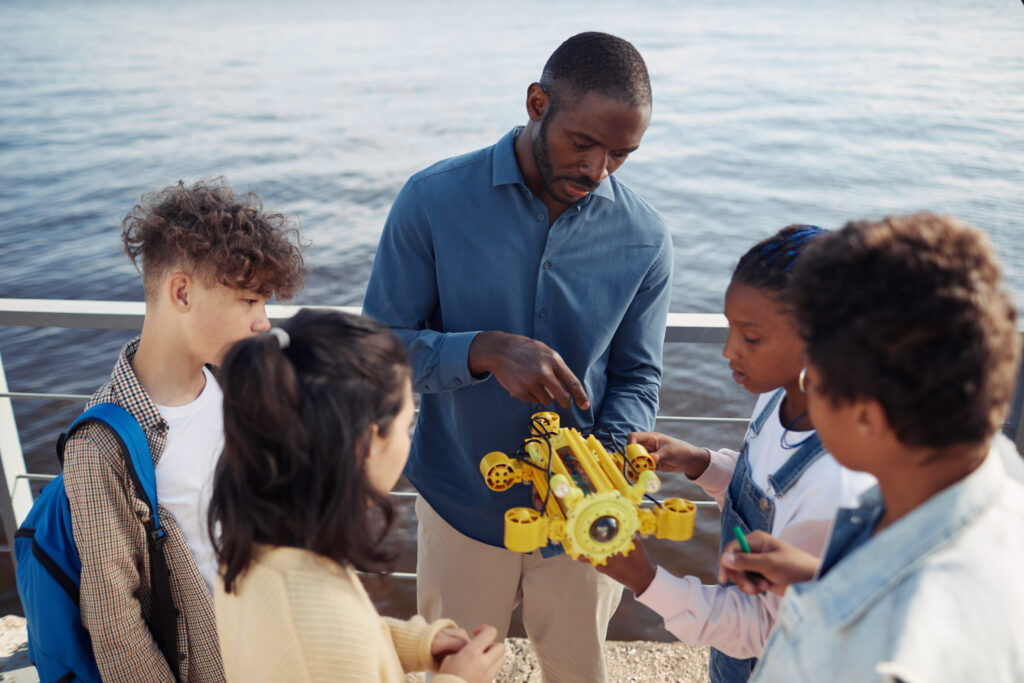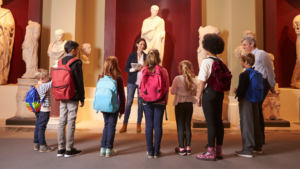
A few weeks ago, I posted a Remix blog chronicling the wonderful e-mail exchange I had with Jim Bailey, co-founder and executive director of Rock Tree Sky, an inclusive, self-directed K-12 Learning community. Jim had just read Too Essential to Fail and wrote to let me know how he was using it in his community.
At the end of the blog, I promised to share more about the conversations I’ve started with Josh Schachter, founder and executive director of CommunityShare, an amazing organization committed to “igniting civic engagement and a passion for learning by activating the wisdom and lived experiences of educators, students, and community members.”
I was halfway through editing my notes from the wonderful call I had with Josh when he sent me a powerful piece on CommunityShare published in Forbes. Kate Cassada’s article’s title, “Transforming Communities into K-12 Classrooms” and her first subtitle, “Putting the Public Back in Education,” speak to the exciting possibilities associated with getting many more people in places across the community engaged in deeper, more sustained learning relationships with young people.
CommunityShare’s model “re-imagines our communities as learning ecosystems where community members offer their unique experience in the form of social, cultural, creative and intellectual capital to students and educators.” The on-line platform they have developed really works. Educators propose projects to answer questions formed by their students and specify the kinds of experience and roles they are looking for to enrich the project. Community members become human library members through a registration process that documents their interests, professional and lived experience, and preferred roles. Educators search for community partners. Community partners search for projects. Ecosystem stewards monitor the platform to facilitate connections to ensure that matches are made and projects are completed.
Cassada’s two titles, however, also point out the enormous level of effort needed to really think outside of the box we call school.
Transforming communities into K-12 classrooms by giving K-12 teachers the capacity to tap into the wealth of experience and practical knowledge embedded often invisibly in the community clearly enriches learning for classrooms of learners. Involving the public will definitely get learners out of the building. But will these experiences be limited to the traditional school classroom, school day, and school year?
Putting the public back in education by giving individuals in the community the opportunity to take volunteering with teachers and learners to the next level clearly provides more constructive opportunities for parent and community involvement. But most people equate education with school and not a community’s wide range of learning opportunities.
There is absolutely nothing about the model’s vision or platform that requires that the educators be classroom teachers, as opposed to other school personnel or educators in museums, libraries, or youth, faith, and community organizations. The website makes it clear that the digital platform is available for educators in school and community settings. Similarly, there is nothing that prohibits teachers, and I would expect older high school students, from being community partners – offering their full selves to the community.
But there is definitely something that prompts us to automatically apply these constraints when we hear the terms student, teacher, and community member. This is why, over the next few months, we encourage our community-based partners to take the time to read this article and ask:
- How much could I enrich the learning projects my organization creates if our community had a human library system?
- How might I look to involve classroom teachers in school-day, afterschool, and summer learning projects or use the platform to connect to educators in other systems?
- How might my staff, students, and families benefit from being invited to join the human library to make their gifts and interests more widely known to our organizations, schools, and community?
As you explore these questions, let us know what you think.
We welcome your contributions to the topic. Please reach out to talkwithus@kpcatalysts.com if you’d like to join to the discussion.



No comment yet, add your voice below!